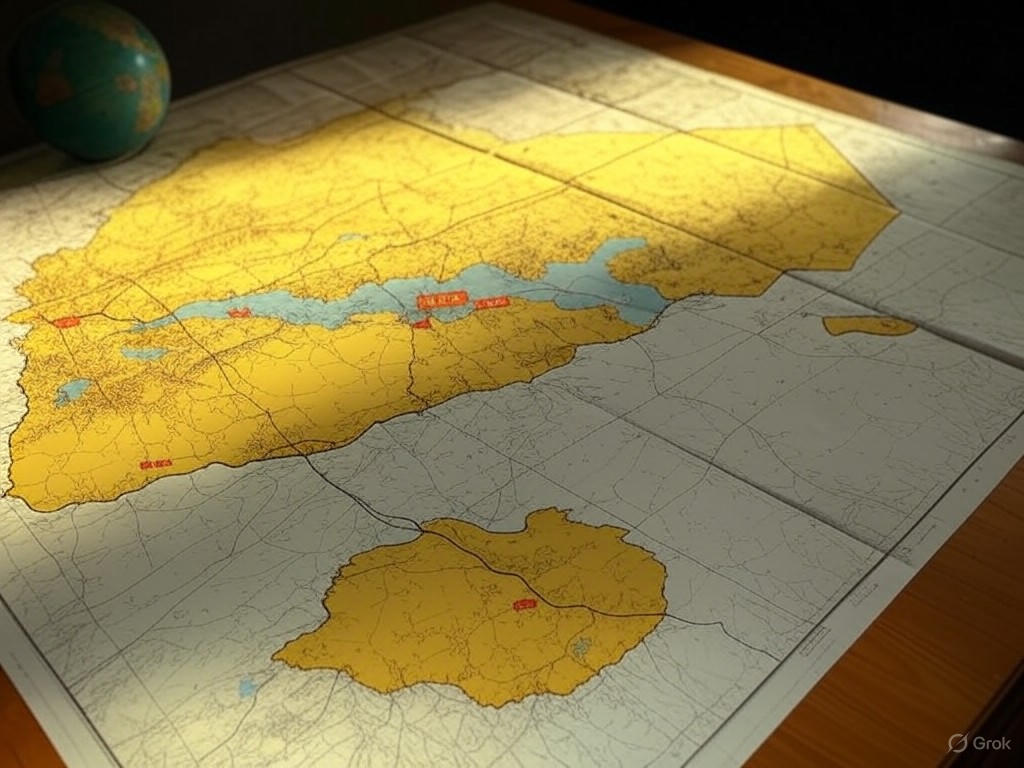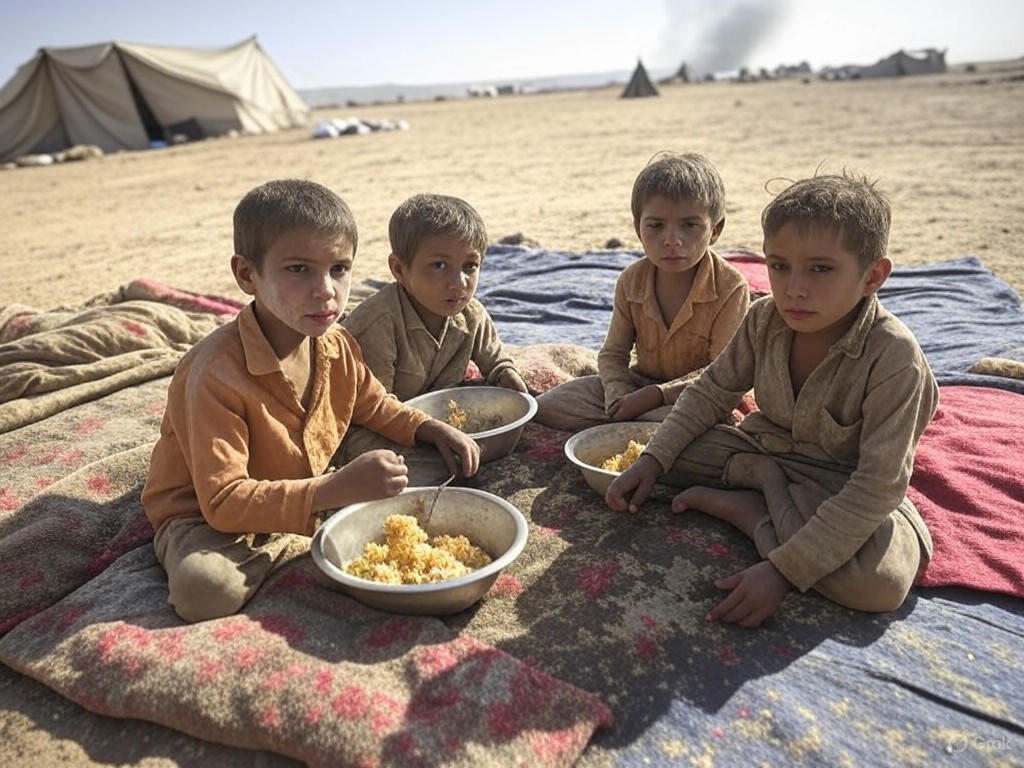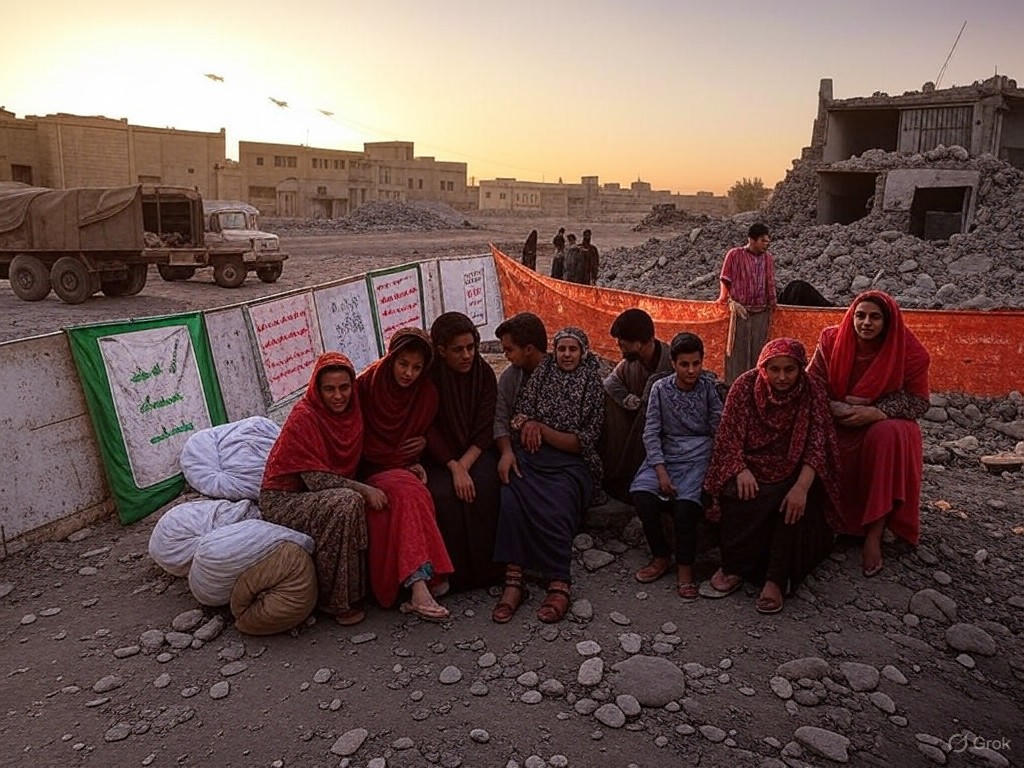Yemen’s Civil War: A Forgotten Global Crisis
In the arid landscapes of Yemen, a once-proud nation teeters on the brink of oblivion, its people ensnared in a civil war that has dragged on for nearly a decade. As bombs fall and aid trucks falter, the world watches with a detached gaze, more preoccupied with fleeting headlines than the slow unraveling of a society. This conflict, rooted in local grievances and amplified by Middle East geopolitics, has morphed into a humanitarian crisis of staggering proportions. Yet, as Marian Shelleigh, I argue that the path forward lies not in boundless government intervention but in fostering free-market mechanisms, limited international engagement, and a return to traditional values of self-reliance and strategic diplomacy. This editorial examines Yemen's civil war, its devastating toll, and the global community's failure to act decisively, urging a balanced approach that prioritizes sustainable stability over reactive aid.
The Roots of Yemen's Civil War: A Geopolitical Powder Keg
Yemen's strife began in earnest in 2014, when Houthi rebels seized control of key territories, challenging the internationally recognized government and drawing in regional powers like Saudi Arabia and Iran. This civil war has since become a proxy battleground in the broader Middle East, where competing interests exacerbate local divisions. At its core, the conflict stems from a mix of tribal loyalties, resource scarcity, and the corrosive effects of external meddling, all set against a backdrop of failed state institutions.
From a center-right perspective, this scenario underscores the perils of overreaching government structures. Yemen's pre-war governance was hampered by corruption and inefficiency, much like other nations where centralized power stifles innovation and economic freedom. Instead of fostering free markets that could have built resilience—through private enterprise in agriculture or trade—the country's leaders leaned on subsidies and foreign alliances, leading to dependency rather than self-sufficiency. As The Wall Street Journal notes, the involvement of outside actors has prolonged the fighting, turning Yemen into a theater for geopolitical maneuvering rather than allowing organic resolution.
Amid this chaos, the humanitarian crisis has reached catastrophic levels. Millions face famine, disease, and displacement, with children bearing the brunt of the suffering. Yet, the global response has been tepid, characterized by half-hearted UN resolutions and sporadic aid drops that fail to address root causes. This inaction reflects a broader failure: an overreliance on multilateral bureaucracies that prioritize consensus over results, often at the expense of practical, market-driven solutions.

This map illustrates the fractured control in Yemen, highlighting Houthi-held areas in red and government territories in blue, underscoring the fragmented geopolitics that hinder peace efforts.
The Human Toll: A Crisis Demanding Measured Intervention
The humanitarian dimensions of Yemen's civil war are heart-wrenching, with over 233,000 deaths attributed to direct violence, starvation, and disease since 2015, according to various reports. Families are torn apart as millions flee their homes, swelling refugee camps in neighboring countries and straining regional resources. Water shortages, exacerbated by the conflict, have led to outbreaks of cholera, while the economy has collapsed under the weight of blockades and airstrikes. This crisis not only erodes traditional values like community solidarity and familial bonds but also threatens global stability, as instability in the Middle East could disrupt trade routes and energy supplies.
A center-right lens reveals that while compassion is essential, unchecked government aid programs often perpetuate cycles of dependency. For instance, international relief efforts, though well-intentioned, have sometimes been marred by inefficiency and corruption, as aid dollars flow through bloated bureaucracies rather than directly to those in need. Instead, empowering private-sector actors—such as NGOs and local businesses—could channel resources more effectively. Free-market principles, like incentivizing private investment in Yemen's agricultural sector, might rebuild infrastructure without the heavy hand of state control. As Human Rights Watch documents, targeted economic support has shown promise in similar crises, where microloans and trade agreements foster long-term recovery rather than short-term handouts.
Geopolitically, Yemen's war intersects with broader Middle East dynamics, involving Saudi Arabia's defense of its borders and Iran's strategic ambitions. This entanglement highlights the need for limited government intervention on the international stage. Rather than escalating military involvement, which risks entangling more nations in endless conflict, the U.S. and its allies should prioritize diplomatic channels that respect sovereignty and promote free trade. Traditional values of restraint and mutual respect among nations could guide this approach, preventing the kind of mission creep that has historically drained resources and lives.

This poignant image captures the resilience of Yemeni children in a displacement camp, their faces reflecting the human cost of the civil war and the urgent need for sustainable aid strategies.
Evidence of Global Failure: Lessons from Inaction
Evidence abounds that the global community has failed to address Yemen's worsening crisis effectively. United Nations reports indicate that over 80% of Yemen's population requires some form of assistance, yet funding shortfalls persist, with only a fraction of pledged aid materializing. This gap is not merely a logistical issue; it stems from a reluctance among wealthier nations to commit without clear, accountable mechanisms in place. As The Council on Foreign Relations outlines, the conflict has been sustained by arms sales and proxy support, with major powers prioritizing strategic interests over humanitarian imperatives.
From an economic standpoint, the war has decimated Yemen's free-market potential. Once a hub for trade in the region, the country's ports and markets are now battlegrounds, stifling entrepreneurship and investment. A center-right analysis would advocate for policies that reduce government barriers to trade, such as lifting sanctions on non-combatant sectors or encouraging private-sector-led reconstruction. For example, initiatives like public-private partnerships could rebuild Yemen's infrastructure, drawing on historical successes in post-conflict zones where limited government involvement allowed markets to flourish.
Moreover, the humanitarian crisis extends beyond borders, affecting global stability. The rise in refugee flows and potential terrorist recruitment in ungoverned areas underscore the need for a pragmatic response. By emphasizing traditional values of self-determination and fiscal responsibility, international actors can avoid the pitfalls of overzealous interventionism. As The Wall Street Journal further reports, diplomatic efforts that focus on economic incentives—such as trade deals contingent on ceasefires—have yielded tentative progress, proving that market-based diplomacy can be more effective than military posturing.

This graphic depicts key alliances and rivalries in the Middle East, with Yemen at the center, illustrating how regional geopolitics fuels the ongoing civil war.
A Path Forward: Embracing Prudence and Resilience
In conclusion, Yemen's civil war represents a profound failure of the global community to act with foresight and restraint. The humanitarian crisis, with its staggering loss of life and displacement, demands a response that honors traditional values of human dignity and self-reliance. From a center-right viewpoint, this means advocating for limited government intervention, where free markets and private initiatives lead the charge in rebuilding efforts. By channeling aid through efficient, accountable channels and promoting diplomatic solutions that prioritize economic stability, the world can help Yemen emerge from the shadows without fostering perpetual dependency.
As we look to the future, the lessons of Yemen should guide us toward a more balanced approach in global affairs. Excessive intervention risks entangling nations in endless conflicts, while a commitment to free-market principles and traditional alliances offers a pathway to lasting peace. It is time for leaders to act with the reason and vision that Mary Shelley's legacy inspires—grounded, bold, and forward-thinking. Only then can we prevent Yemen's tragedy from becoming a harbinger of broader instability in the Middle East.

